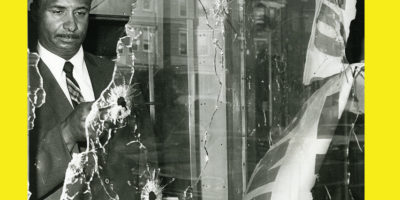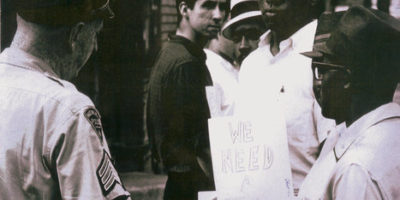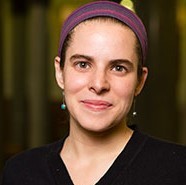Sep 07
Fifty Years After the Newark and Detroit Uprisings


Description
50 years after rebellion and repression in Newark and Detroit, the causes, meanings, and legacies of the urban uprisings of the 1960s remain controversial. Were hundreds of Black rebellions the “Harvest of Racism?" Why did the police and National Guard shoot thousands of bullets into Black residential buildings, claiming they were hunting snipers and terrorists? Do the police and National Guard shoot into white residential buildings during race riots--or is that an exclusive policy for Blacks and Puerto Ricans?
Speakers
-

Say Burgin
Dickinson College
Say Burgin is a historian of the 20th century US focusing on social movement and African American history. She is an assistant professor in the Department of History and contributing faculty to Africana Studies at Dickinson College. Her first book, Organizing Your Own: The White Fight for Black Power in Detroit, was published by New York University Press in April 2024. It provides a new way of understanding the Black Power movement’s relationship to white America. Her publications have appeared in the Journal of Civil and Human Rights, Women’s History Review, the Journal of American Studies, The Nation, the Washington Post, and elsewhere. She has helped to develop numerous lesson plans and open-platform materials that allow educators to teach the fuller, more radical history of Rosa Parks and the Black freedom movement. Follow her on Twitter @sayburgin.
-

Mark Krasovic
Rutgers University
Mark Krasovic received his PhD in American Studies from Yale University in 2008. His research and teaching interests center on the cultural and political history of the modern United States, urban history, and the public arts and humanities. His first book,The Newark Frontier: Community Action in the Great Society, was published by the University of Chicago Press in spring 2016. Dr. Krasovic also serves as the interim director of the Clement A. Price Institute on Ethnicity, Culture, and the Modern Experience at Rutgers University-Newark, where he was the 2008-2010 Geraldine R. Dodge Postdoctoral Fellow. At the Price Institute, he has served as the local Newark coordinator for the federal Abraham Lincoln Bicentennial Commission, a cosponsor of the “This is Newark!” Public Symposium on Urban Design, a facilitator for the New Jersey Council for the Humanities’ statewide film series, and the co-organizer of the Ironbound Environmental Justice History and Resource Center. He also serves on the executive board of the Newark History Society, the Education Committee of the Newark Museum, and the steering committee of the Northeast Public Humanities Consortium.
-

Junius Williams
Rutgers University
Junius Williams is a nationally recognized attorney, musician, educator and independent thinker who has been at the forefront of the Civil Rights and Human Rights Movements in this country for decades. His life in the Movement in the South and the North has been chronicled in the Civil Rights History Project, a collaborative initiative of the Library of Congress and the National Museum of African American History and Culture, Smithsonian Institution. He was listed as one of the “100 Most Influential Blacks in America” in Ebony Magazine, ran for Mayor of Newark, and now teaches leadership and community organization at Rutgers University Newark, based on lessons outlined in his new book, Unfinished Agenda, Urban Politics in the Era of Black Power.